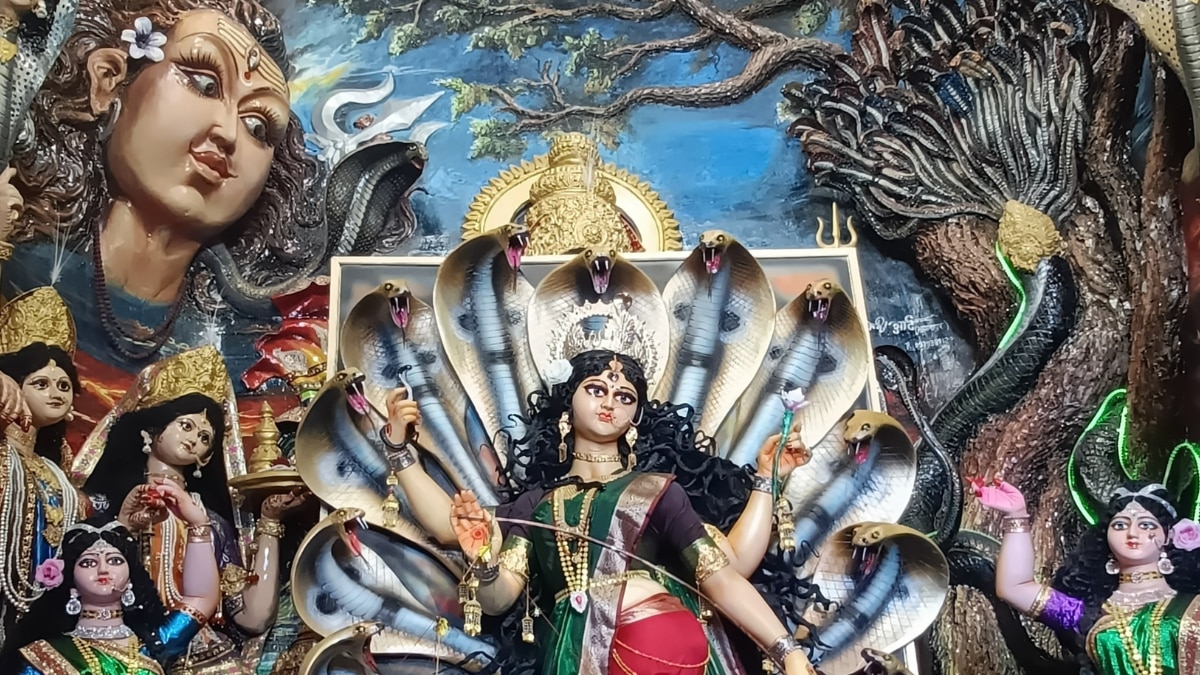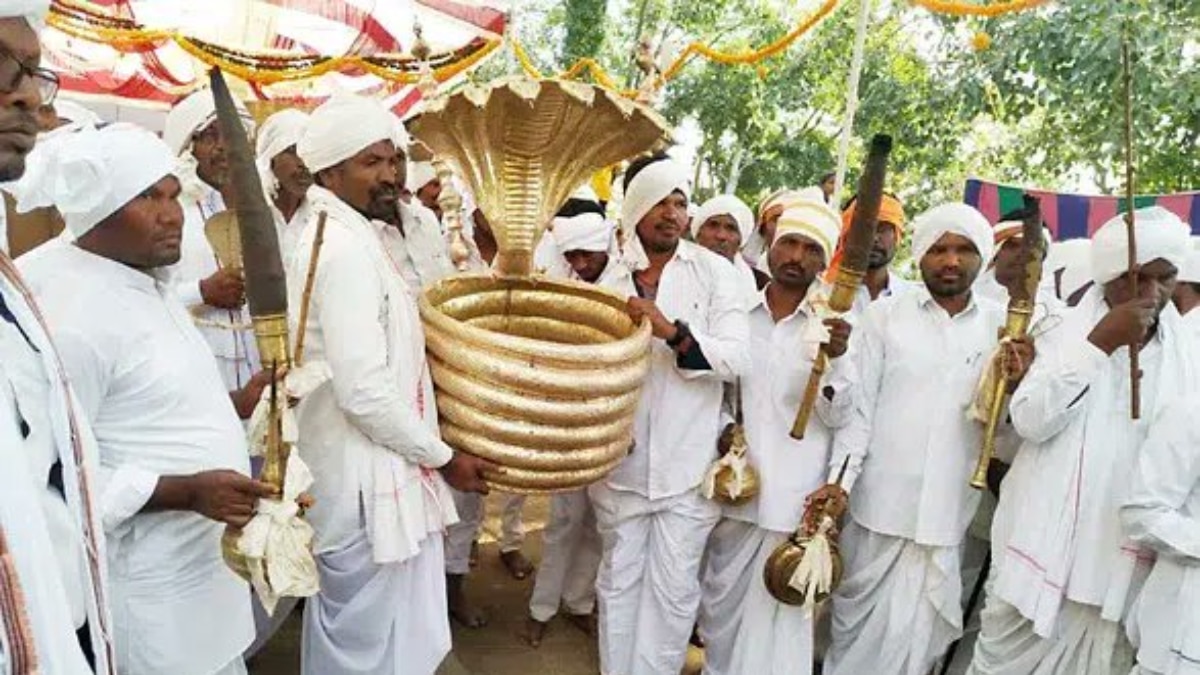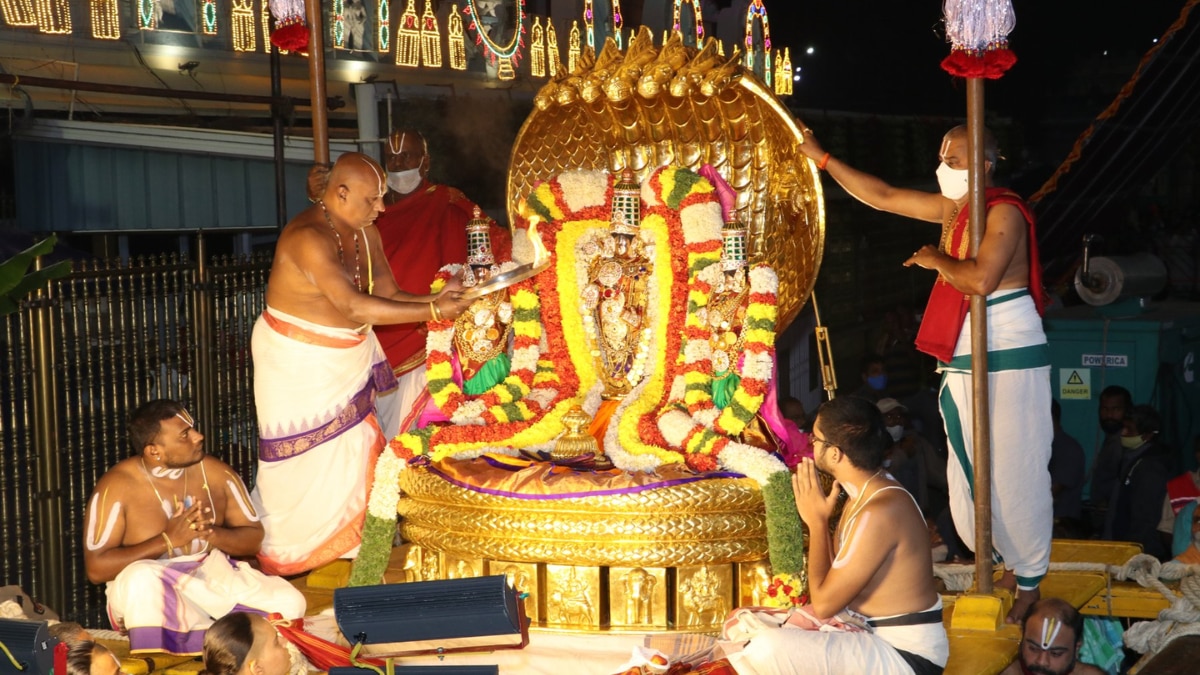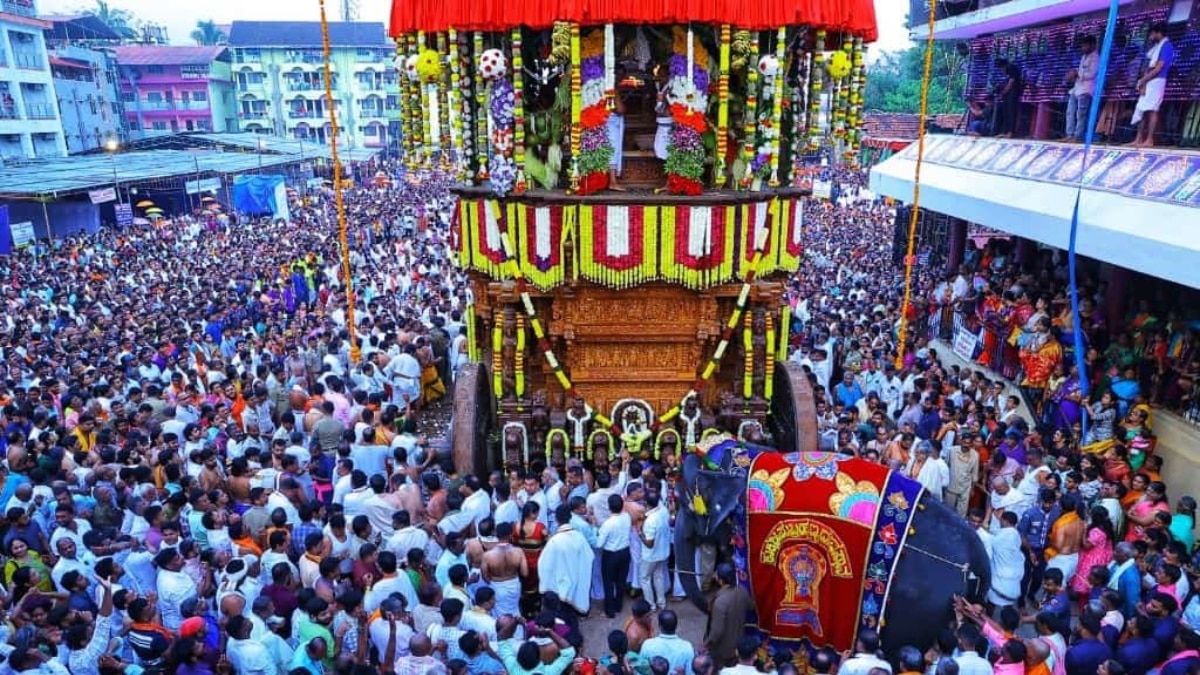Snake Festivals In India Beyond Nag Panchami 2025 You Should Know About
In India, snakes have long been regarded as sacred beings. They are symbols of fertility, protection, and divine energy. While Nag Panchami is the most famous festival that's dedicated to Nag Devta, it is by no means the only one. Across the country, several unique festivals and traditions celebrate snakes and serpent deities. These celebrations showcase the diversity of India's spiritual landscape and its reverence for nature. Here are some of the most captivating snake festivals in India that are rooted in deep cultural history and mythology. These festivals are as enthralling as Nag Panchami.
ALSO READ: 5 Powerful Naga Temples In India You Should Visit This Sawan For A Unique Spiritual Experience
1. Manasa Puja
 (Image Source: Twitter/@bgpourpride)
(Image Source: Twitter/@bgpourpride)
Manasa Puja is observed widely in West Bengal and Assam. This festival honours Manasa Devi, the goddess of snakes, fertility, and prosperity. It's a centuries-old festival that traces its origins to the Manasa Mangal Kavya, a medieval Bengali text that narrates how the goddess fought for human recognition. During the festival, clay idols of snakes are worshipped at home and in temples. Devotees offer milk, flowers, and fruits, seeking protection from snakebites and blessings for family welfare. he festival takes place during the monsoon months when snake encounters are frequent. Traditional folk songs called Manasa Gaan add to the festive spirit. Manasa Puja is a cultural expression of faith and the deep bond between nature and human life in Bengal's rural heartlands.
2. Nagoba Jatara
 (Image Source: Twitter/@Legacy_ias)
(Image Source: Twitter/@Legacy_ias)
In the small village of Keslapur, Telangana, the Nagoba Jatara is one of the largest tribe fairs of India. Celebrated by the Mesaram clan of the Gond tribe, the event is dedicated to Nagoba, their serpent deity. Every year, thousands of tribal families father for puja with offerings, prayers, and traditional rituals. The festival is not only a religious event but also a vibrant cultural extravaganza, that features traditional Gond music, dance, and communal feasting. Nagoba Jatara reflects a form of serpent worship that predtaes origanised religion, connecting tribes with nature and ancestry.
3. Nagula Chaviti
 (Image Source: Twitter/@GoTirupati)
(Image Source: Twitter/@GoTirupati)
Celebrated with great devotion, Nagula Chavithi is a festival of Andhra Pradesh and Telangana. This festival takes place during the Kartik month, just after Diwali. On this day, women observe fasts and offer prayers. Offerings of turmeric, milk, and flowers are made to anthills, which are believed to be the dwelling places of Nags. During Nag Puja, families pray for protection against snakebite., good health, and prosperity. This tradition is deeply tied to agrarian life, as snakes are considered protectors of crops and guardians of soil. Nagula Chavithi is a beautiful example of how rural India blends ecology with devotion. It's the simple act of nature worship that has been turned into a deeply meaningful community celebration.
4. Subramanya Shashti
 (Image Source: Twitter/@CaptBrijesh)
(Image Source: Twitter/@CaptBrijesh)
Subramanya Shashti is celebrated at the renowned Kukke Subramanya Temple in Karnataka. According to Hindu mythology, this sacred shrine is where Lord Subramanya gave refuge to Vasuki, the king of serpents, after defeating a powerful demon. Since then, the deity has been worshipped as the lord and protector of snakes. The festival falls in November–December and draws thousands of devotees from across the country. On this day, special processions, pujas, and homas are held to honour Subramanya and the serpent deity. Pilgrims also perform the Sarpa Samskara and Ashlesha Bali rituals here to atone for Sarpa Dosh.
[Disclaimer: The content of this article is based solely on beliefs, and should be taken as general guidance. Individual experiences may vary. ABPLive.com does not assert the accuracy or validity of any claims or information presented. It is strongly recommended to consult a qualified expert before considering or implementing any information or belief discussed herein.]
lifestyle